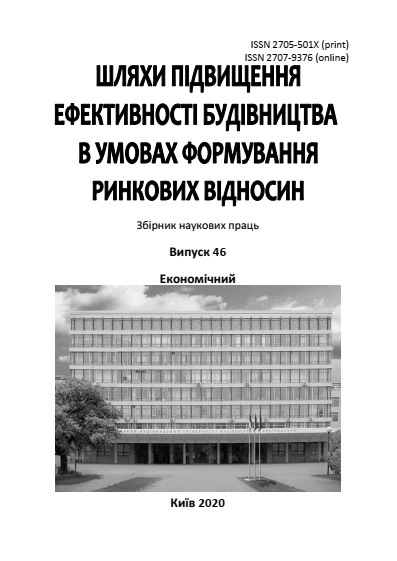Producer’s culture and standards of living as causes for the growth of the innovative globalized economy
DOI:
https://doi.org/10.32347/2707-501x.2020.46.230-239Keywords:
Organizational and technological conditions, standards of living, culture, innovative economy, social needs, povertyAbstract
The article examines current aspects of the development of human potential, both in economic and cultural contexts. The author links L. Vygotsky’s conceptualization of social development dynamics with M. Max-Neef’s development model based on the research into producers’ fundamental needs. Such combination has helped to identify a correlation between cultural and physical needs of a person with the dynamics of person’s intellectual potential growth, as well as the former’s key role in alleviation of poverty.
With the modern development of innovative economy, there is inevitably a need for a new cultural vision of the market role in accordance with the needs of harmonious development of the individual. This vision should be focused not so much on the increase in additional value, but on the presence of the necessary signs in public life caused by the level of quality of life of the employee.
It is revealed that the modern international economic order is the source of human poverty, and at the same time various social problems, and the source of problems related to the individual, given the triad of economy-society-culture. Without the dialectical unity of economic development of society and the development of the employee's personality, the chances of survival of the individual and society become infinitesimal and at the same time there is a tendency to degrade the cultural heritage of mankind.
Thinking and rethinking the design of any social development-oriented tool, especially in the community, should be multidimensional in nature and include well-connected control phases. Failure to do so can lead to imbalances and gaps between the scientist's theoretical vision and the contextual reality that is changing.
The article shows various aspects of the role of dialectical unity of economic development of society and development of the employee's personality, without which the possibility of survival of a person and society becomes infinitely small and at the same time there is a tendency to degrade the cultural heritage of mankind.
References
Выготский Л. С. Психология развития человека. М. : Изд-во Смысл ; Изд-во Эксмо, 2005. 1136 с.
Матвієнко В. М., Ковтун О. Ю. Програма розвитку Організації Об’єднаних Націй. Українська дипломатична енциклопедія: у 2-х т. / редкол.: Л. В. Губерський (голова) та ін. К. : Знання України, 2004. Т. 2. 812 с.
Fariñas León G. Psicología, educación y sociedad. La Habana : Editorial Félix Varela, 2007. 167 p.
González Rey F. Acerca de lo social y lo subjetivo en el socialismo. Temas, 1995. No. 3. Р. 93‒101.
Max-Neef Manfred A. From the Out side Looking In: Experiencesin Barefoot Economics. Dag Hammarskjöld Foundation, 1992. 208 p.
Morin Edgar. Seven complex lessons in education for the future. UNESCO pulishing, 2001. 63 p.
Sen A.K. Exclusión e inclusión. En: Biblioteca Digital de la Iniciativa Interamericana de Capital Social, Ética y Desarrollo, 2001. 16 p.
Sen A.K. Sobre conceptos y medidas de pobreza. Comercio Exterior, 1992. 17 р.
Sen A.K. Teorías del desarrollo a principios del siglo XXI. Cuad. Econ., 1998. Р. 73‒100.
Human Development Report 2011-2019 http://hdr.undp.org/sites/ default/files/hdr2019.pdf
Downloads
Published
How to Cite
Issue
Section
License

This work is licensed under a Creative Commons Attribution 4.0 International License.
Authors who publish with this journal agree to the following terms:
- Authors retain copyright and grant the journal right of first publication with the work simultaneously licensed under a Creative Commons Attribution License that allows others to share the work with an acknowledgement of the work's authorship and initial publication in this journal.
- Authors are able to enter into separate, additional contractual arrangements for the non-exclusive distribution of the journal's published version of the work (e.g., post it to an institutional repository or publish it in a book), with an acknowledgement of its initial publication in this journal.
- Authors are permitted and encouraged to post their work online (e.g., in institutional repositories or on their website) prior to and during the submission process, as it can lead to productive exchanges, as well as earlier and greater citation of published work (See The Effect of Open Access).

